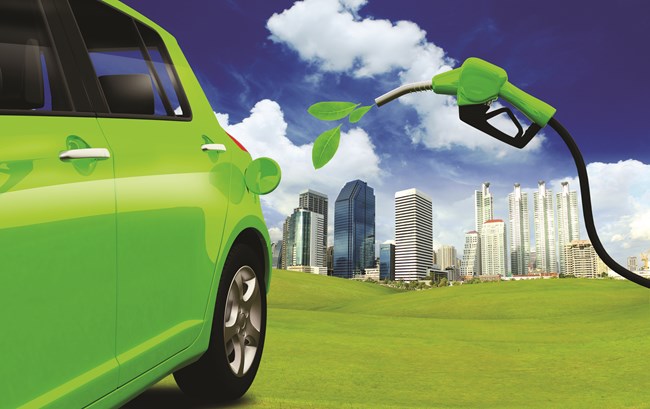
The start point for the best source of fleet information |
Fleets encouraged not to dismiss long-term potential of hydrogen
Date: 27 October 2021 | Author: Sean Keywood

Hydrogen power has the potential to solve issues associated with other forms of low-carbon propulsion, and fleets should therefore be prepared to investigate its benefits over the coming years, despite major practical barriers to adoption currently, according to a new white paper.
Fleet management company Venson Automotive Solutions has published 'On the road to hydrogen', which considers the merits of the fuel versus battery EVs, and also biofuel.
It states that battery EVs are still limited in some applications by range and charging times, and biofuels require land for crop growth and still produce carbon emissions at the point of ignition - problems that do not affect hydrogen.
The paper states: "When [hydrogen is] used as either a liquid fuel, or in a fuel cell, the result is emissions free, and with the ability to produce hydrogen gas in a green manner already available to us, emissions need not be 'hidden' elsewhere in the energy production process.
"Both forms of hydrogen propulsion technology are already well developed and proven in their respective fields. There are already three hydrogen powered passenger vehicles on sale to the public, and commercial use in buses, trucks, generators, and other equipment is already being seen across the world, with great results."
However, the paper, available free from Venson's website, acknowledges that hydrogen infrastructure is currently a major barrier, with just 11 filling stations currently available in the UK - something it argues means a longer-term view is needed.
It states: "The UK lacks gas production, transport, storage, and dispensing facilities on any usable scale. While there is huge investment into all of these from both the public and private sector, building and scaling these networks will not be an instant project.
"Until this infrastructure is widely available, and the adoption of hydrogen power reaches a critical mass, it will remain an outlying technology in the next few years, with a higher cost of use born by the early adopters in its 'pre-commercial' phase.
"These initial barriers to success aside, when viewed in its entirety as a highly anticipated, and well-funded solution to transport and power needs in an emissions-free environment, the next ten years could well be the decade in which hydrogen technology comes of age."
The paper acknowledges that the current main area of focus for hydrogen power is with commercial vehicles, with which there are fewer barriers to adoption, with the capability for hydrogen refuelling 'hubs' to be installed at depots, suitable for applications such as construction site vehicles and refuse collection trucks.
However, it also outlines hope that recently-announced government and private investment could help the situation.
Commenting with the release of the paper, Venson marketing director Alison Bell said: "The past decade has seen hydrogen increase in popularity among manufacturers, particularly for the commercial sector.
"Although there may only be 11 hydrogen refilling stations operating in the UK, meaning the infrastructure does not yet exist to make this a widely attractive or practical option for businesses or families, there are options available.
"Fleets that operate on a more local basis, such as construction sites and urban delivery vehicles, are operating successfully using hydrogen. So, it should not be discounted without proper consideration."










